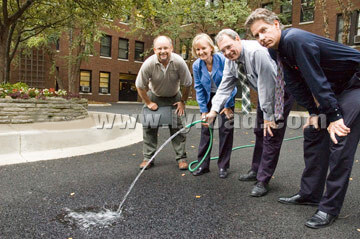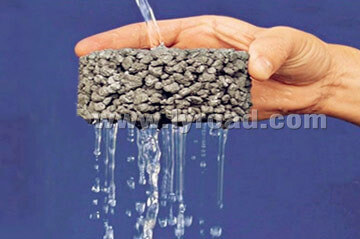One magical scene happened on the parkway of Asbury in America. Rain poured down and disappeared on the road. It was not imagination. There really are stretches of the Garden State Parkway that hardly seem to get wet, even on super-rainy days.
It's not magic, then what has happened? It turns out that a kind of high-tech paving material called "open-graded asphalt" did the trick. The technology has been around for a while, but lately, it's been gaining traction, thanks to tweaks to the asphalt mixture that gradually have improved its durability.
Since it allows the water to drain quickly, open-graded asphalt cuts down the slippery road surface, spray from car wheels, and the headlight glare. That means better visibility and tire traction, and less salt needed in winter storms. What’s more, the material muffles road noise. That's why it's become a popular choice for residential areas.
However, open-graded asphalt costs about 10 percent more than standard asphalt, and doesn't hold up quite as well, due to its coarse aggregate composition. This will lead to a question, how does it work? Here it is, the open-graded asphalt is composed of coarse stones, gravels, and other materials. The top layer is made with larger stones that create voids, or channels, for the water to escape through. So instead of pooling on the surface, the water disappears into a sub-layer of stones and drainage pipes. That’s why it has a weaker body than traditional asphalt and didn’t go popular at the very beginning.
The Parkway currently has more than 119 miles of a roadway paved with open-graded asphalt, the Turnpike Authority says. Much of that, totaling 43.5 miles, runs through Monmouth and Ocean counties.
Safer roads. "Anything that reduces the risk of water pooling on the road, and reduces the risk of hydroplaning, we are all for," said Tracy Noble, a spokeswoman for AAA Mid-Atlantic.




